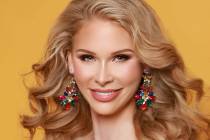5 foods you should never eat before a workout
While there was some debate in the past about whether it’s better to eat before or after a workout, most trainers now agree that having a little something before you exercise is helpful.
“What you eat prior to your workout helps to fuel your workouts, so you can maintain a consistent intensity level to get the most out of your session,” says Tony Gentilcore, a certified strength and conditioning specialist and co-owner of Core Collective in Brookline, Massachusetts.
Taylor Beebe, a personal trainer in California, agrees: “Nutrition is so important for maximizing the efficacy of your workouts.”
But not all pre-workout food is created equal. Choose wrong, and you can end up struggling to finish your exercise routine.
“You can have a great workout because of what you ate, or it could make things worse,” explains Albert Matheny, a registered dietitian, strength and conditioning specialist and co-founder of SoHo Strength Lab.
Trainers stress that everyone and their digestion is different: Some people can eat certain foods and do just fine working out afterward, while others will struggle. But if you want to play it safe, there are certain foods they recommend avoiding before your workout.
Foods to avoid pre-workout
It’s important to keep in mind that just because certain foods aren’t great to have before exercise doesn’t mean they need to be avoided entirely.
“What I want my clients to understand is that all foods can fit into a healthy diet, but there are some that might make them feel better before a workout,” Beebe says.
These are the biggest ones she and other trainers recommend avoiding before exercise:
Heavy or high-fat foods: High-fat foods like nuts, meats and olive oil aren’t a great option before workouts.
“Foods that are slower to digest, anything higher in fat, or even high protein, will sit heavier in your stomach, so they probably aren’t ideal before a cardio workout,” Beebe says.
Gentilcore agrees. “Avoid a large meal or a meal that’s ‘heavy’ with a lot of grease and fat,” he says. “This tends to just make people lethargic and runs the risk of them getting nauseous during their session.”
Dairy products: Like high-fat foods, dairy products can be slow to digest. That can divert blood flow from your muscles to your digestive system, making you feel sluggish and even nauseous, Matheny says.
Some people will also have stomach cramps when they eat dairy before they exercise.
“In general, people don’t love to have dairy before they work out,” he adds.
High-fiber foods: To be clear, fiber is great for you — but it’s probably not the best idea to load up on right before you work out. Like high-fat foods, high-fiber foods are slow to digest, Matheny says. That means things like beans and whole grains are a better choice after your workout than before you exercise.
“It takes your body time to break that fiber down,” he adds. These foods can also lead to bloating, gas and stomach cramps and may even raise the risk that you’ll need to use the bathroom during your workout.
Spicy foods: When you exercise, your body directs more blood toward your muscles to support them, Matheny says. “That’s pulling blood away from digestion,” he says.
As a result, foods tend to sit in your stomach for longer periods of time when you exercise. But he explains that eating spicy foods before a workout can raise the risk of heartburn, saying, “That jostling can cause food to go up your GI tract and cause acid reflux.”
Carbonated drinks: Similarly, having a carbonated drink before you exercise can also lead to acid reflux. “It will create a backflow of your digestion if you’re moving up and down,” Matheny says. That can cause you to have stomach pain, nausea or just general discomfort.
Foods to fuel a workout
You know what you shouldn’t eat, so what should you eat? That depends.
“I like to encourage my clients to ingest a mix of carbohydrates and protein prior to their workout, like a basic workout drink of whey protein and simple sugars,” Gentilecore says.
Beebe suggests focusing on “quick-digesting carbs” like a piece of fruit, cereal, rice cakes or applesauce about 30 to 60 minutes before your workout.
“If the workout duration is longer than 90 minutes, you might consider supplementing with anywhere from 30 to 60 grams of carbs per hour with dried fruit, gummy candies or sports drinks,” she says.
According to Matheny, the best way to figure out what to eat before you exercise is to listen to your body.
“Some people can’t eat before they work out; some people have to eat before they work out. It’s unique to each person,” he says. “Try things and adjust depending on how you react.”



















